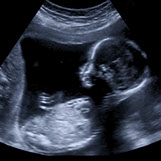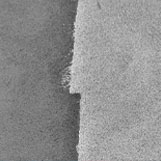Please find our most frequently asked questions about divorce in Scotland, division of assets, adultery and separation agreements.
FAQs
What are the rules for divorce in Scotland?
The final implementation of Brexit on 31st December 2020 caused major changes to family law jurisdiction rules and a divergence between the nation states of the UK. Scotland has chosen to revoke Council Regulations (EC) No. 2201/2003 (Brussels IIa) and England and Wales have largely retained the previous EU Regulations.
In Scotland we have reverted to pre- Brussels II legislation where the Scottish courts have jurisdiction to deal with divorce only if parties are domiciled in Scotland on the date on which the action was begun or were habitually resident in Scotland throughout the period of one year ending with the date on which the action began.
Please find our explanation on Domicile here.
Do you need a Separation Agreement before divorce in Scotland? Is a Separation Agreement legally binding in Scotland?
A Separation Agreement between parties is a binding contract and as such is legally binding. Certain aspects of the Separation Agreement will be immediately enforceable in the event the Agreement is registered such as in relation to periodical payments or capital payments. Further binding contractual agreements such as agreement to sell a house or property may require the intervention of the court to give effect to the contract. Whether or not a Separation Agreement before divorce is required in Scotland is really a matter for your family lawyer to assess. If you have property issues and child issues to resolve it is normally better to have a Separation Agreement in place first. If, however, there are no such issues to sort out it may be appropriate to divorce without entering into a Separation Agreement.
At Cath Karlin Family Law we have initial meetings with all our clients to assess their specific requirements. If we do not consider that you require a Separation Agreement in advance of a divorce, we will tell you, but we strongly recommend that you discuss your situation with us before divorce as once divorce has been granted in Scotland you lose the right to make a claim for financial provision.
Can you get a quick divorce in Scotland?
Yes. You can divorce immediately if you can establish that the marriage has broken down irretrievably. There are four different ways you can show this irretrievable breakdown as follows:
- You can establish your spouse has committed adultery. However, if you condone that adultery i.e., continue to live with your spouse and accept the adultery you may be personally barred from proceeding on this ground.
- You can establish that your spouse’s behaviour is such that you cannot be expected to live with them. You would need to provide evidence from a corroborating witness who can attest to your spouse’s behaviour and the effect this has had on you. This does not mean just physical abuse it can also mean mental and emotional abuse. The test is also subjective i.e., what you deem to be unreasonable. Unreasonable behaviour can also include gambling, drug, and alcohol abuse and having inappropriate relationships with third parties on for example social media which may not constitute adultery, but you still consider this to be unreasonable behaviour.
The other two ways of establishing an irretrievable breakdown require you to wait for a period as follows:
- Separation from your spouse for one year with the consent of your spouse.
- Separation from your spouse for a period of two years after which no consent is required.
Can I divorce in Scotland if I did not marry in Scotland?
Where you marry has no bearing on where you can divorce. If you are a domiciled Scot i.e., you are Scottish, consider Scotland your home and retain a significant connection with Scotland you will still be able to divorce in Scotland even if you were not married in Scotland. You will also be able to divorce in Scotland even if you did not marry in Scotland and no longer live in Scotland.
Scottish no fault divorce
No fault divorce in Scotland is encouraged. Most divorces proceed in this manner after parties enter into a Separation Agreement. The ways of obtaining a no- fault divorce are as follows:
- One year separation with your spouse’s consent.
- Two years separation without your spouse’s consent.
We strongly recommend that you speak with a member of the team prior to proceeding with this type of divorce as there may be issues that you require to tie up in advance.
What happens in a divorce if you commit adultery?
Adultery has a specific legal meaning and is difficult to prove. If you have sexual relationships with another party who is not your spouse whilst you remain married that it is technically adultery. If your spouse finds out about this and can prove that you committed adultery, then that may give them grounds for divorce they otherwise might not have had. Committing adultery will however generally have no adverse bearing on the case.
What am I entitled to if I divorce my partner?
If you are married, then the rules of the Family Law (Scotland) Act 1985 apply. As a generalisation you are entitled to a fair share (normally 50%) of the net matrimonial assets. The net matrimonial assets are the value of the assets less the value of any debts which were accumulated by the efforts of one or both of the parties during the period of the marriage i.e., from the date you married to the date that you separated. The general rule is that if you owned property pre-marriage that would not form part of the matrimonial pot. Anything purchased during the marriage and prior to the date of separation would normally be deemed matrimonial property.
How long after divorce can you remarry in Scotland?
You can remarry in Scotland as soon as you obtain your Divorce Decree. In Scotland there is no Decree Nisi/ Decree Absolute procedure i.e., once you obtain an Extract Decree from the Scottish courts you are divorced. The court normally pronounces an interlocutor after which the court will wait 14 days before extracting the Decree. This is to give the other party an opportunity to appeal. On expiry of the 14-day period the court will issue the Extract Decree of Divorce at which point you can then proceed to remarry in accordance with the usual legal requirements.
How long do you have to be separated before divorce in Scotland?
You can divorce instantly if you can establish either your spouse has behaved unreasonably, and you cannot be expected to continue living with them or that your spouse has committed adultery. Otherwise, you would require waiting one or two years before applying for divorce.
If your children have been removed from their place of habitual residence (wrongful removal) you can take steps to get them back as long as the place they have been removed to is a signatory to the Convention. Likewise, if you have consented to a removal for a fixed period such as a holiday and your children are not returned ( wrongful retention) you can also take steps to have them returned.
You need to act quickly and make an application through the central authority (Scottish Government) I can help you with that and to find a good lawyer in the country the children have been taken.
How long does a divorce take in Scotland?
If it is an ordinary divorce proceeding by way of ordinary procedure i.e., if you have children or you are trying to establish grounds for divorce based on either unreasonable behaviour or adultery the process would normally take about 8-12 weeks if it is undefended. If it is defended, then the case could take as long as one year-18 months. If, however you proceed under the simplified procedure, you should be divorced within 8-12 weeks. Please note however that there is a backlog at the moment due to the global pandemic and the homeworking of court staff.
What is a simplified divorce in Scotland?
A simplified divorce in Scotland is a divorce under the simplified procedure. To divorce this way, you will require to have made sure that all property has been divided and that neither of you have any claims that you wish to make against the other. You will need to have been separated either one year and be sure that you will obtain the consent of your spouse or two years if you know they will not consent. You will also not be able to utilise simplified procedure if you have children under 16 or if your spouse has any mental health issues. Simplified divorce is exactly that. It requires completion of a form and negates the need for a writ or summons. Your spouse will be served the paperwork by the court and the court will need to be satisfied that your spouse has received the application and has consented if required.
How are assets divided on divorce?
The general rule is that assets are divided on a fair sharing basis which is generally 50% each. Firstly, you will need to ascertain which assets are included in the matrimonial pot and which are not. All assets accumulated by the efforts of one or both of the parties during the course of the marriage i.e., from the date of marriage to the date of separation are deemed to be matrimonial. It is the net assets that are divided and therefore we total the value of all assets less any debts and one half of that is a fair share of the matrimonial pot. If you are retaining an asset, for example your pension, account will be taken of that in the final division.
Can you divorce if your spouse does not want to?
Yes, you can seek an immediate divorce if you can establish your spouse has either committed adultery or their behaviour is such that you can no longer be expected to reside with them, your spouse could defend your action and you would need to provide evidence to support your application. You could also proceed if you have been separated for more than two years as your spouse no longer requires consenting after you have been separated more than two years.
What percentage of marriages end in divorce?
Divorce cases are on the rise again, up 7.5%, compared to 2017/2018. This is probably a result of the pandemic. The divorce rate in Scotland is around 33% however this does not take into account the number of co-habiting couples who also separate.
How do I get a divorce? How to start a divorce?
The first port of call is to instruct a family lawyer who can advise you which procedure is required, whether you require to raise in the Sheriff Court or the Court of Session and whether we should be proceeding by way of simplified or ordinary procedure. We will also assess whether you would be better off resolving issues pertaining to children and finances prior to divorce. At Cath Karlin Family Law we offer the fixed fee package to get a broad overview as to your specific circumstances so that we can give you the best advice and advise you as to how to deal with matters as efficiently and cheaply as possible. For further information visit our Divorce and Separation page.
How is debt divided on divorce?
Debt is divided i.e., equally even if all the debt is in your name. Your spouse would need to accept that all debt which was accrued during the course of the marriage i.e. from the date of marriage to the date of separation is matrimonial unless they can show that (1) the debt came with you into the marriage i.e. was accrued pre-marriage or (2) there has been dissipation of matrimonial assets such as debts having been incurred as a result of gambling, drug-taking or other behaviours which might be deemed to be inappropriate.
Get in Touch Today
Cath Karlin is a vastly experienced lawyer and uses this alongside her expertise to assist you however possible. She is very familiar with the process of divorce and can expertly guide you whatever your situation. Her divorce and separation expertise spans a number of issues including child custody, division of assets, prenuptial cohabitation agreements, surrogacy cases and expatriate divorce. If you’re curious about costs, we have a page breaking down the initial costs of a consultation. Read her reviews to see how great she is at what she does and get in contact today. I really pride myself on my local reputation, with 60 5-Star Google reviews.
Find out where you stand
Get in touch
How can I help?
If you’d like to arrange a consultation or find out if I can help you please do get in touch.
Main office call: 0131 202 9450
Direct dial call: 0131 202 9451
Address
Cath Karlin Family Law
51 William Street
Edinburgh
EH3 7LW





